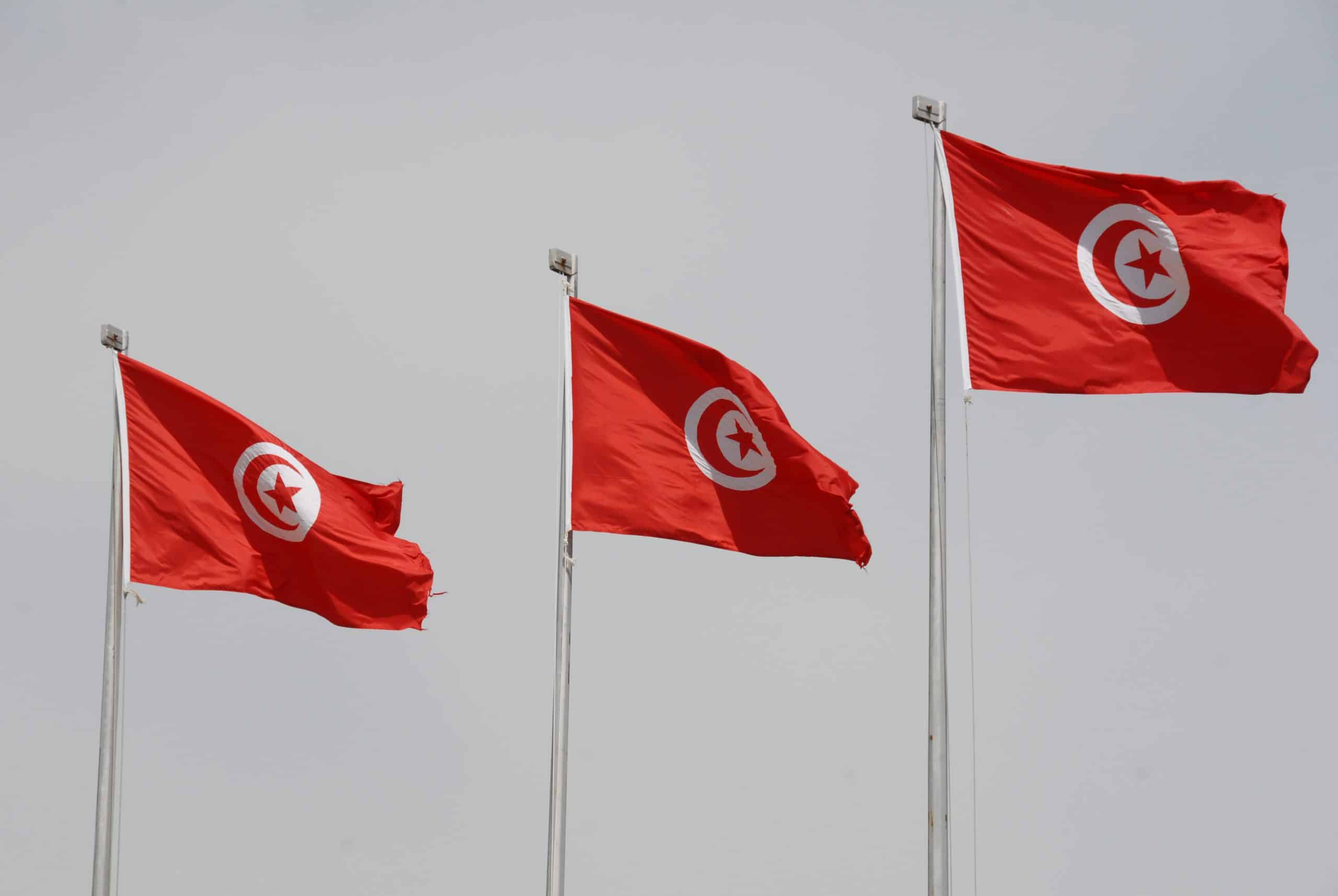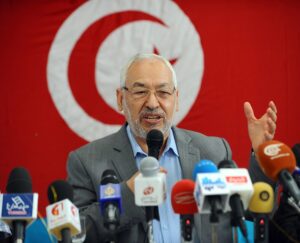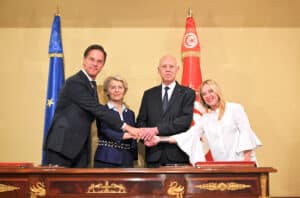Since its transition to democracy in 2011, Tunisia has been presented as a success story of democracy. Currently much of this positive sentiment has turned around and the country’s politics is in a deadlock situation. Largely due to the Covid-19 pandemic, the country is enduring a disastrous economic crisis. Governing institutions have not been able to consolidate themselves and continue to quarrel amongst each other. While thousands of protesters take to the streets, the country’s President, Prime Minister and Parliament continue to fight over power. As the country’s has not had a full functioning Constitutional Court since its establishment in 2014, the disputes between President and Prime Minister cannot be settled. Since 2018, Parliament has not been able to agree on the appointment of three judges to the Constitutional Court, illustrating the deep divisions existent in Tunisian politics.
Mass protests against policy brutality and corruption
On February 6 hundreds of protesters took to the streets to mark the anniversary of the killing of a prominent activist in 2013. Over the last weeks many Tunisians have defied the country’s lockdown measures against the spread of Coronavirus. They are, deservedly so, concerned about their endangered freedoms and the state of their country. During the 2011 revolution the country transformed into a democracy, but Tunisians are worried that step by step such freedoms are taken away again. Mass protests have been taking place for the last weeks against policy brutality and widespread corruption.
These negative sentiments are underlined by a feeling of disappointment about the last ten years. Protesters feel that Tunisia has become a police-state once again. There is little to show in terms of the promised economic and social development. Since the country’s transition to democracy the Tunisian politics has failed to pull itself together. This despite the fact that the country is going through its worst economic crisis in decades. Its economy has shrunk with almost 9 percent during 2020 and consumer prices have risen drastically. Protesters are angry about poor public services and demand “jobs and dignity”. It is not a coincidence that it is mainly young people who have taken to the streets, as about a third of them is currently unemployed.
As a result, Tunisians are becoming more and more fed up with the country’s post-revolutionary establishment. To illustrate, in the 2019 parliamentary elections only 42 percent of voters turned up, as compared to 68 percent in 2014. The established parties lost many of their seats, and as such the country was left with a heavily fractured and divided Parliament. Populist forces from both the left and the right are gaining momentum and are increasingly putting pressure on established political forces. The fragmented Parliament has since 2019 not been able to reach a consensus and pass the reforms the country needs in times of crisis. It adds to the resentment among the public that the politicians only care about their own interests, rather than Tunisia’s interests.
Rivalry between President and Prime Minister
In essence the ongoing disputes between Minister Hichem Mechichi and President Kais Saied should be seen as a clash between the post-revolutionary establishment and its opposition. The opposition forces view that too little has changed since the promising 2011 revolution. The independent candidate and former academic, Saied was elected President with a large majority in 2019. As an outsider to politics he promised to fight corruption and get the country back on track. In an effort to solve the political crisis the country was in during 2020, he appointed Mechichi as Prime Minister.
Mechichi formed a technocratic government to lead to country out of its unstable situation. The appointed of his technocratic cabinet was approved by Parliament, but since then several established parties have raised the price of their support. They have continuedly pressured Mechichi’s government and demanded for more power, under the guise of more democratic representation. The Islamist Ennahda, under Rached Ghannouchi, is among the most vocal parties on this issue, pressing for the inclusion of more Ennahda Ministers in Mechichi’s government.
As such, throughout January several disputes over power between Saied and Mechichi have occurred. Succumbing to pressures from established forces in Parliament, on January 27 Mechichi announced a reshuffle of his Cabinet. Without the consent of President Saied he replaced eleven of his Ministers. Saied continues to fight for a technocratic government amid this political, social and economic crisis and claims that Mechichi’s Cabinet reshuffle is against the constitution.
Lack of a Constitutional Court
Tunisia’s largest problem is that such disputes over power between the President, Prime Minister and Parliament cannot be solved as the country has no full functioning Constitutional Court. The Tunisian Constitutional Court was established in 2014 and supposed to be the institution that would control the powers of other governing institutions. Without it, there is no authority to determine whether the President is correct in claiming Mechichi’s Cabinet reshuffle is against the constitution. The Constitutional Court is made up out of twelve judges, four of which need to be appointed by Parliament.
Tunisia’s divided Parliament has so far only been able to agree on the appointment of one judge, leaving three of the Court’s seats vacant. Parliament needs to appoint three more judges for the Court to function. It has since 2014 not been able to do so and it is unlikely to assume that during these unstable times it will. Part of the reasons that Parliament has only appointed one judge so far, is that choosing judges is a polarizing process, just like in the United States.
Another cause is the coalition’s desire to avoid polarizing for the sake of stability and consensus. Since the revolution Tunisia’s two largest parties, the Islamist Ennahda and secular Nidaa Tounes, have formed an alliance, blocking effective political opposition. Without a solid opposition to control the government, the coalition has passed several laws that are criticized for backsliding on human rights. In recent times the logic of consensus of the post-revolutionary establishment is increasingly criticized. Given that, the Nidaa Tounes has imploded since the elections of 2014. For both the established- and opposition forces there is much power at stake in the appointment of judges, as their power struggle continues. The establishment cling on to the leftover power they enjoy, while the opposition seeks to increase its power as much as it can.
The country remains stuck in a political deadlock as the President, Prime Minister, established forces and anti-establishment forces fighting over power without a Constitutional Court to settle the disputes once and for all. It is to hope that Parliament is able to set aside its internal differences and appoint three judges. That will not directly solve all the issues of those Tunisians who have en masse taken to streets during a lockdown, but is an essential step in the right direction.
Sources: Aljzaeera1, Aljazeera2, Aljazeera3, Atlantic Council, BBC, Brookings, Clingendael, Democracy Speaks, Euronews, Foreign Brief, Foreign Policy
Image: Wikimedia



